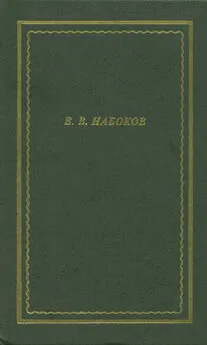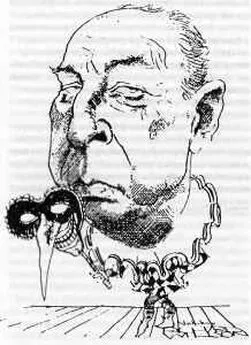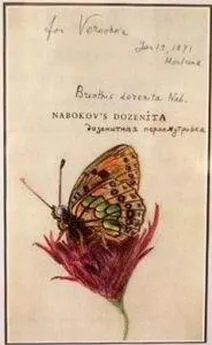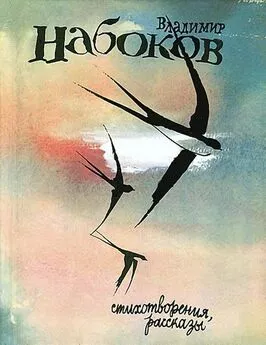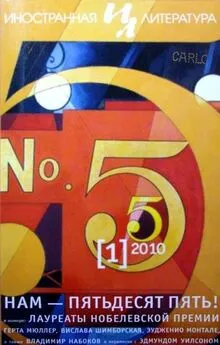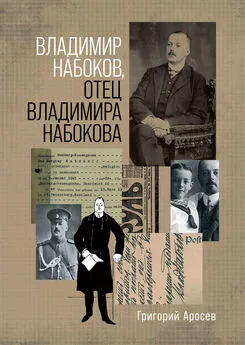Владимир Набоков - Стихотворения
- Название:Стихотворения
- Автор:
- Жанр:
- Издательство:Академический проект
- Год:2002
- Город:СПб.
- ISBN:5-7331-0160-1
- Рейтинг:
- Избранное:Добавить в избранное
-
Отзывы:
-
Ваша оценка:
Владимир Набоков - Стихотворения краткое содержание
Наиболее полное из всех до сих пор изданных в России собраний поэтических произведений крупнейшего русского/американского писателя XX века. В связи с уникальной спецификой двуязычного творчества Набокова в книге публикуются также его стихи, написанные на английском языке, и поэтические переводы на английский язык классических текстов русской поэзии (Пушкин, Лермонтов, Фет, Тютчев, Ходасевич). Публикуется также ряд переводов на французский язык и стихотворения из романов.
Стихотворения - читать онлайн бесплатно полную версию (весь текст целиком)
Интервал:
Закладка:
Just as we deal with Winter's pest
against this one it will be best
to stay in lighted rooms and drink
and drown our minds, and jest.
Come, let us dance upon the brink
to glorify Queen Pest!
There's bliss in battle and there's bliss
on the dark edge of an abyss
and in the fury of the main
amid foam-crested death;
in the Arabian hurricane
and in the Plague's light breath.
All, all such mortal dangers fill
a mortal's heart with a deep thrill
of wordless rapture that bespeaks
maybe, immortal life,
— and happy is the man who seeks
and tastes them in his strife.
And so, Dark Queen, we praise thy reign!
Thou callest us, but we remain
unruffled by the chill of death,
clinking our cups, carefree,
drinking rose-lipped maiden's breath
full of the Plague, maybe!
Your revelry and ribald songs insult
the silent gloom spread everywhere by death!
Among the mourners and their moans, among
pale faces, I was praying in the churchyard
whither the thunder of your hateful orgies
came troubling drowsy graves and rocking
the very earth above the buried dead.
Had not the prayers of women and old men
blessed the dark pit of death's community
I might have thought that busy fiends to-night
were worrying a sinner's shrieking spirit
and dragging it with laughter to their den.
Be gone, old priest! Go back the way you came!
of One Who bled upon the Cross to save us, —
break up your monstrous banquet, if you hope
to meet in heaven the dear souls of all those
you lost on earth. Go to your homes!
are dismal places. Youth is fond of gladness.
who but three weeks ago stood on his knees
and wept as he embraced his mother's corpse,
and writhed, and rocked, and howled over her grave?
Or do you think she does not grieve right now —
grieve bitterly, even in God's abode —
as she looks down at her disheveled son
maddened by wine and lust, and hears his voice
a voice that roars the wildest songs between
the purest prayer and the profoundest sigh?
Arise and follow me!
to trouble thus my soul? Here am I held
by my despair, by memories that kill me,
by the full knowledge of my evil ways,
and by the horror of the lifeless void
that meets me when I enter my own house,
and by the novelty of these wild revels,
and by the blessed poison of this cup,
and by the light caresses (God forgive me)
of a depraved but fair and gentle creature.
My mother's soul can summon me no more;
my place is here; too late!..I hear your voice
calling my soul… I recognise your efforts
to save me… but, old man, depart in peace —
and cursed be anyone who goes with you.
Now you have got your sermon, priest! Be gone!
raised heavenward, — promise to leave unuttered
a name that death has silenced in the tomb.
Could I but hide from her immortal eyes
this sight, this banquet… Once upon a time
she thought me pure, free-spirited and proud,
and my embrace was paradise to her.
Where am I? Sacred child of light, I see you
above me, on a shore where my wrecked soul
now cannot reach you.
he raves about his wife who's dead and buried.
leave me.
Farewell, my son.
444–445. FROM EUGENE ONEGIN
when taken ill in earnest,
he has made one respect him
and nothing better could invent.
To others his example is a lesson;
but, good God, what a bore
to sit by a sick man both day and night,
without moving a step away!
What base perfidiousness
the half-alive one to amuse,
adjust for him the pillows,
sadly present the medicine,
sigh — and think inwardly
when will the devil take you?»
with posters flying in the dust,
by the most lofty will of Zeus
the heir of all his relatives.
Friends of Lyudmila and Ruslan!
The hero of my novel,
without preambles, forthwith,
I'd like to have you meet:
Onegin, a good pal of mine,
was born upon the Neva's banks,
where maybe you were born,
or used to shine, my reader!
There formerly I too promenaded —
but harmful is the North to me.
his father lived by means of debts;
gave three balls yearly
and squandered everything at last.
Fate guarded Eugene:
at first, Madame looked after him;
later, Monsieur replaced her.
The child was boisterous but nice.
Monsieur l'Abbé, a poor wretch of a Frenchman,
not to wear out the infant,
would teach him everything in play,
bothered him not with stern moralization,
scolded him slightly for his pranks,
and to Letniy Sad took him for walks.
season for Eugene came,
season of hopes and tender melancholy,
Monsieur was ousted from the place.
Now my Onegin is at large:
hair cut after the latest fashion,
dressed like a London Dandy —
and finally he saw the World.
In French impeccably
he could express himself and write,
danced the mazurka lightly,
and bowed unconstrainedly —
what would you more? The World decided
he was clever and very nice.
in something and somehow:
hence education, God be praised,
is in our midst not hard to flaunt.
Onegin was, in the opinion of many
(judges resolute and stern),
a learned fellow but a pedant.
He had the happy talent,
without constraint, in conversation
slightly to touch on everything,
keep silent, with an expert's learned air,
during a grave discussion,
and provoke the smiles of ladies
with the fire of unexpected epigrams.
still, to tell you the truth,
he had enough knowledge of Latin
to make out epigraphs,
descant on Juvenal,
put at the bottom of a letter vale,
and he remembered, though not without fault,
two lines from the Aeneid.
He had no urge to rummage
in the chronological dust
of the earth's historiography,
but anecdotes of days gone by,
from Romulus to our days
he did keep in his memory.
life for the sake of sounds,
an iamb from a trochee —
no matter how we strove — he could not tell apart;
dispraised Homer, Theocritus,
but read, in compensation, Adam Smith,
and was a deep economist:
that is, he could assess the way
a state grows rich,
and what it lives upon, and why
it needs not gold
when it has got the simple product.
His father could not understand him,
and mortgaged his lands.
I have no leisure to recount;
but where he was a veritable genius,
what he more firmly knew than all the arts,
what since his prime had been to him
toil, anguish, joy,
what occupied the livelong day
his fretting indolence —
was the art of soft passion
which Naso sang,
wherefore a sufferer he ended
his brilliant and tumultuous span
in Moldavia, in the wild depth of steppes,
far from his Italy.
are very charming, I agree —
but there's greater charm, less simple,
— the instep of Terpsichore.
By prophesying to the eye
a prize with which no prize can vie
'tis a fair token and a snare
for swarms of daydreams. Everywhere
its grace, sweet reader, I admire:
at long-hemmed tables, half-concealed,
in spring, upon a velvet field,
in winter, at a grated fire,
in ballrooms, on a glossy floor,
on the bleak boulders of a shore.
Oh, how I wanted to compete
with the tumultuous breakers dying
in adoration at her feet!
Together with those waves — how much
I wished to kiss what they could touch!
No — even when my youth would burn
its fiercest — never did I yearn
with such a torturing sensation
to kiss the lips of nymphs, the rose
that on the cheek of beauty glows
or breasts in mellow palpitation —
no, never did a passion roll
such billows in my bursting soul.
by hidden memory retold —
and feel her little ankle in its
contented stirrup which I hold;
again to build mad builders start;
again within a withered heart
one touch engenders fire; again
— the same old love, the same old pain…
But really, my loquacious lyre
has lauded haughty belles too long
— for they deserve neither the song,
not the emotions they inspire:
eyes, words — all their enchantments cheat
as much as do their pretty feet.
446. EPIGRAM {*}
(On Vorontzov)
Half-merchant and half-prince
half-scholar and half-dunce,
half-knave — but there's a chance
he'll be complete for once.
447. THE NAME {*}
What is my name to you? 'Twill die:
a wave that has but rolled to reach
with a lone splash a distant beach;
or in the timbered night a cry…
'Twill leave a lifeless trace among
names on your tablets: the design
of an entangled gravestone line
in an unfathomable tongue.
What is it then? A long-dead past,
lost in the rush of madder dreams,
upon your soul it will not cast
Mnemosyne's pure tender beams.
Интервал:
Закладка:
